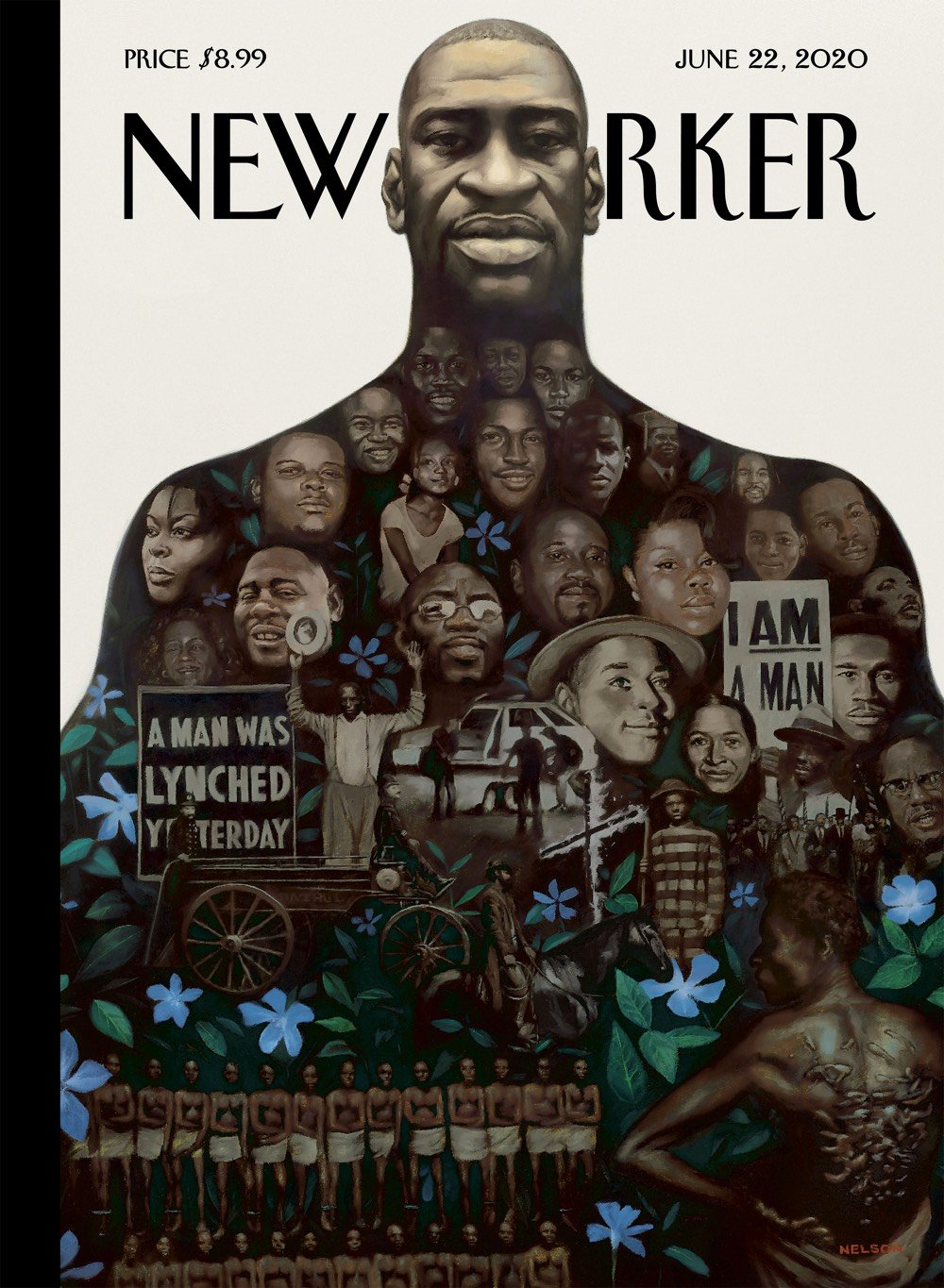Kadir Nelson’s Powerful New Yorker Cover Honors the Black Victims of Police Violence

This week’s issue of the New Yorker features a cover designed by artist Kadir Nelson. The magazine has an interactive version of the cover online that identifies the people shown, along with their stories. Along with George Floyd, there’s Tony McDade, Trayvon Martin, Freddie Gray, Sandra Bland, Breonna Taylor, Tamir Rice, Martin Luther King, Jr., Medgar Evers, Emmett Till, Rodney King, the victims of the Tulsa Race Massacre, and too many others. The cover also features periwinkles, which have been used to locate the often unmarked graves of slaves.
The Periwinkle Initiative derives its name from the flower that certain scholars believe was the most common wildflower brought to gravesites of enslaved Americans. This perennial flower has guided researchers to many abandoned burial grounds that would have otherwise gone undetected. The resilient Periwinkle is a perfect symbol to represent the endurance of enslaved Americans and their legacy.
One other thing. According to the NYer, the name of the cover is “Say Their Names”. This is a take on the #SayHerName hashtag that was created to bring “awareness to the often invisible names and stories of Black women and girls who have been victimized by racist police violence”. Phrases and associated hashtags like “Say His Name” and “Say Their Names” have been used over the past few weeks, but some activists say that co-opting specifically takes the spotlight away from the victims the original hashtag was meant to highlight. Here’s Precious Fondren for Teen Vogue:
Since Floyd’s death, there have been uprisings around the country. There’s also been an influx of people using hashtags like #SayHisName and #SayTheirNames to remember the names of other male victims of police violence. While everyone deserves to be honored and remembered, especially when they are being murdered at the hands of those sworn to protect us, it should be noted that such hashtags muddle the very reasoning behind the creation of the #SayHerName.
Conceived in 2014 by the African American Policy Forum and the Center for Intersectionality and Social Policy Studies, the #SayHerName hashtag was meant to amplify the names and narratives of Black women and girls who have also been the victims of police killings; people simply couldn’t name them the way they can name Tamir Rice, Mike Brown, or Freddie Gray.





Stay Connected